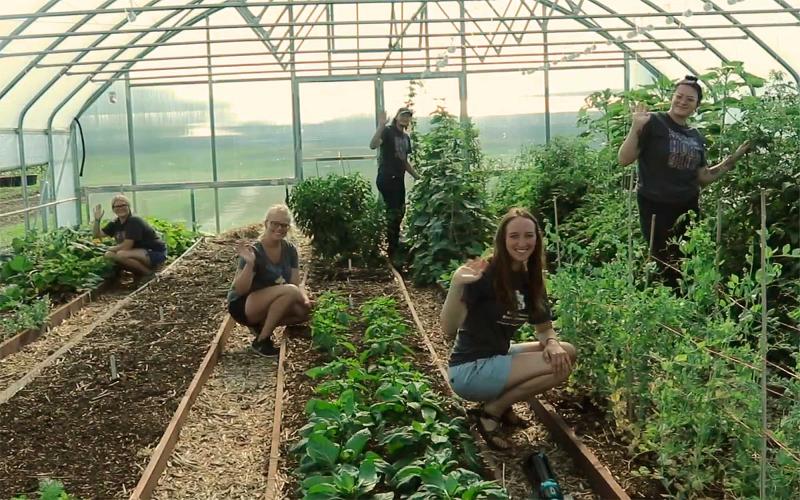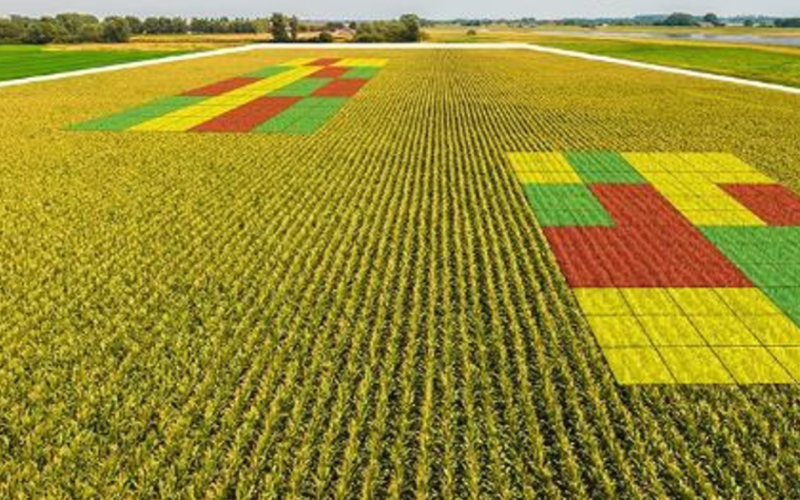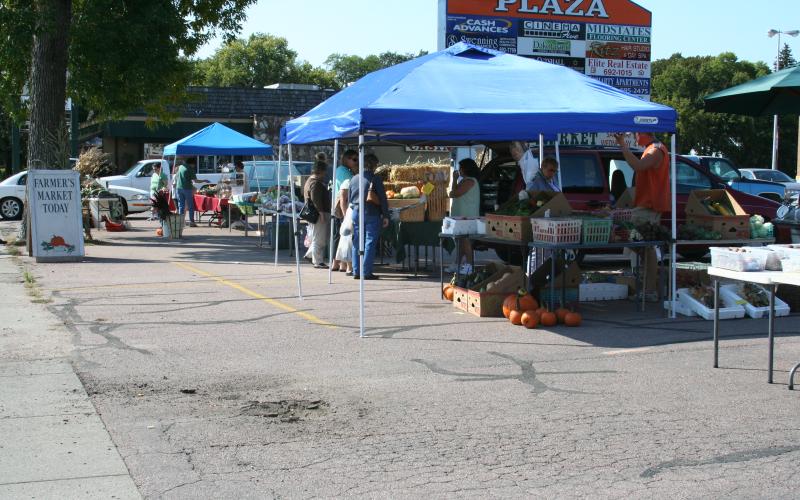House Bill 1322 creates opportunities for food entrepreneurs to sell certain products with minimal regulatory requirements. The bill expands the types of home-produced, home-canned and food products allowed to be sold directly from a household.
Before certain foods are processed or sold out of a house, each individual involved in production is required to complete a South Dakota Department of Health-certified online training once every five years. Items being sold are subject to sales tax. To learn more, please reach out to the DOR at 1-800-829-9188 or bustax@state.sd.us
Online Training Options
The new requirements are explained below. Individuals who need to complete an approved training will pay a $40 registration fee to gain access to the self-paced online course. A certificate will be provided upon completion. The producer shall retain records verifying the timely completion of training.
SDSU Extension's Master Food Preserver or Home Food Preservation course may serve as equivalent training. If you have already taken either of those courses, contact Curtis Braun, SDSU Extension Food Safety Field Specialist.
Cottage Food Law Changes Overview
Non-Temperature-Controlled and Baked Goods
Section 1. That § 34-18-35 be AMENDED:
34-18-35: Except as otherwise provided in § 34-18-38, the licensure provisions of this chapter do not apply to a person selling:
- Non-temperature-controlled food prepared at a residence;
- Home-processed canned goods (requirements will be further explained in § 34-18-36);
- Baked goods prepared at a residence; or
- Any food product prepared at a residence and authorized under § 34-18-36 or section 3 of this Act.
The amended cottage food laws allow non-temperature controlled food and baked goods to be prepared and sold at a home residence. This amendment differs from the old cottage food law as the old cottage food law only allowed non-temperature controlled baked goods to be sold from one’s residence. An example of non-temperature controlled goods would include the following:
- Nuts: almonds, walnuts, cashews
- Grains: wheat, corn, rice, barley, oats
- Seeds: sunflower seeds, sesame seeds, chia seeds, coffee seeds
- Dry mixes (e.g. spices/seasoning mix, baking mix, powder drink mix): home ground flour (e.g. wheat flour, corn flour), coffee mix, baking mix, granola mix
- Baked goods: cookies, rolls, cakes, confectionaries, muffins, breads, lefsa, hard candies
This list is not comprehensive. It is a general list of non-temperature controlled foods that would be allowed to be processed and sold from one’s residence without requiring food licensure. Producers selling these types of products are not required to take the South Dakota Department of Health state-approved online training.
It is important to note there are several other products that may be considered non-temperature controlled such as meat jerky and honey. Although these are non-temperature controlled products, these products are regulated by different agencies in South Dakota (i.e. South Dakota Department of Agriculture or South Dakota Animal Industry Board). SDSU Extension's food safety field specialist and the South Dakota Department of Health are able to help answer questions about whether or not a food is allowed to be sold at your resident under the new cottage food laws.
Canned Goods
Section 2. That § 34-18-36 be AMENDED:
34-18-36. No canned good may be sold unless the pH level is 4.6 or less or the water activity level is 0.85 or less.
Except as otherwise provided in this section, a producer selling canned goods under this section shall, every five years, complete food safety training approved by the department. The training must be available online. The producer shall retain records verifying the timely completion of training.
A producer selling home-processed goods under this section may, in lieu of the requirement for food safety training, maintain verification of each recipe from a third-party processing authority. The third-party processing authority must have knowledge of the thermal processing required of food in hermetically-sealed containers and shall verify the method of processing and that the pH or water activity threshold levels are met. The processing authority shall provide verification in writing to the producer.
The amended cottage food law allows canned goods that are less than 4.6 or have a water activity of less than 0.85 to be sold from one’s house. If a processor desires to sell their canned goods out of their house, they are required to take the South Dakota Department of Health state-certified online training. The processor is required to complete this training before food is allowed to be processed and sold out of their house and the training is required to be done on an individual basis. The cost of the training is $40 and lasts for 5 years from the date of completion. The training covers the following:
- General canning principles
- Canning equipment
- Acid foods
- Acidified foods
- Low acid foods
- Freezing foods
- Drying foods
- pH testing of canned goods
Additionally, a processor can have their canned good reviewed for free by SDSU Extension Food Safety, which is a third-party processing authority in South Dakota. If you would like to have your canned good reviewed for free:
- Fill out the Process and Ingredient Review Form and Send 1 sample of your product to 4101 W 38th St., Ste 103, Sioux Falls, SD 57106.
- These jars can be small (1/4 pint). The process typically takes about one week to perform to review and approve products.
Having your products reviewed is preferred, especially if your product and process deviates from an evidence-based recipe. As noted above, the cost is free and the turnaround time is one week.
Baked and Frozen Goods
Section 3. That 34-18 be amended with a NEW SECTION:
Any producer who verifies compliance with the food safety training requirement set forth in accordance with the food safety training requirements set forth in accordance with § 34-18-36, may sell the following:
- Any non-heat-processed fermented food, provided the food is consistently maintained at a temperature that is at or below 41°F;
- Kuchen and baked goods that require time and temperature control for safety, including pies, cheesecake, and baked goods having a custard or cream filling, and sauces and pesto that require time and temperature control for safety, provided the food is consistently maintained at a temperature that is at or below 41°F; and
- Home-processed frozen fruit and produce, provided the food is consistently maintained at a temperature that is at or below 0°F.
Any processor that sells fermented foods, baked goods that require time and temperature controls such as pies, kuchen, custard or cream-filled baked goods, cheesecake, or home-processed frozen fruit and produce are required to take the South Dakota Department of Health state-certified online training. For any temperature-controlled baked good that requires time and temperature control for safety, including soft pies, cheesecake, and baked goods having a custard or cream filling, and sauces and pesto that require time and temperature control for safety, the food must be consistently maintained at a temperature that is at or below 41°F. The processor is required to complete this training before food is allowed to be processed and sold out of their house and the training is required to be done on an individual basis.
Food Labels
Section 4. That § 34-18-37 be AMENDED:
34-18-37: Food prepared at a residence may not be sold unless it has a label that includes the following information:
- Name of the product;
- Name of the producer;
- Physical address of production;
- Mailing address of the producer;
- Telephone number of the producer;
- Date the product was made or processed;
- Ingredients;
- In the case of food sold in accordance with section 3 of this Act, a directive to keep refrigerated or frozen; and
- A disclaimer that states: “This product was not produced in a commercial kitchen. It has been home-processed in a kitchen that may also process common food allergens such as tree nuts, peanuts, eggs, soy, wheat, milk, fish, and crustacean shellfish.”
The labeling requirements for home processed goods has been updated. SDSU Extension is able to provide a nutrition facts panel and ingredient declaration statement using Genesis Labeling Software. The ingredient declaration statement is created in order of predominance. If you would like to use this service, contact Curtis Braun, SDSU Extension Food Safety Field Specialist.
License Fees
Section 5. That § 34-18-38 be AMENDED:
34-18-38: A person selling food prepared at the person’s residence, in accordance with § 34-18-35, is exempt from licensing and license fee provisions of this chapter if:
- The food meets the requirements of § 34-18-37;
- The food is sold in the seller’s physical presence at:
- The seller’s primary residence;
- A farmer’s market;
- A roadside stand; or
- Other temporary sale venue; and
- The seller, or a person residing at the seller’s primary residence, personally delivers the food to the buyer at the completion of the sale.
This amended section allows a processor to be exempt from licensing and licensing fees if the food meets the labeling requirements as mentioned above in 34-18-37 and is sold at the processor’s primary residence, farmer’s market, roadside stand, or another temporary sale venue. Essentially, all of the foods mentioned in 34-18-35 can be sold without licensing fees if they are labeled appropriately and sold at one of the aforementioned venues. Of important notice is that the seller can drive to the buyer’s location to deliver the food. However, this law does not allow one to ship products via mail or carrier. The seller must be present at one of the aforementioned locations and is not allowed to deliver the product via mail or carrier.


